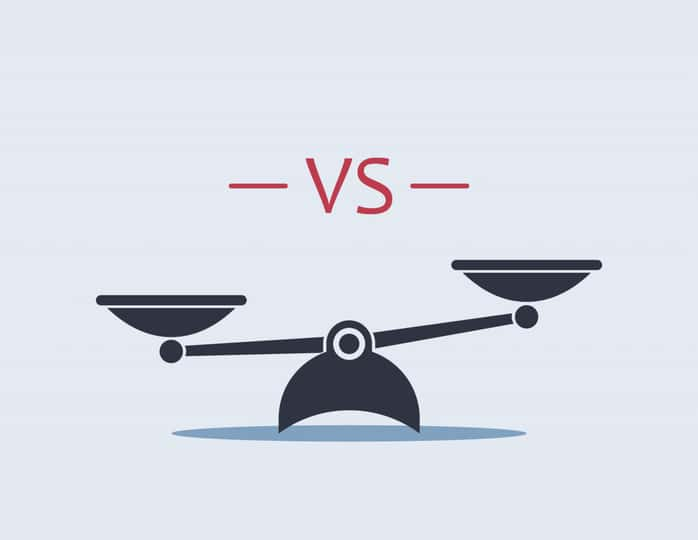Amid rising healthcare costs, health insurance could safeguard against soaring medical bills. Health insurers are expected to achieve favorable overall membership growth and should continue to benefit from significant investments in value-based care and technology platforms. The health insurance segment is well-placed to continue the growth trend in 2023.
Molina Healthcare, Inc. (MOH - Get Rating) is a FORTUNE 500 company that provides managed healthcare services to low-income families and individuals under the Medicaid and Medicare programs and through the state insurance marketplaces. Clover Health Investments, Corp. (CLOV - Get Rating) is a physician enablement company that provides medicare advantage plans in the United States.
With rising healthcare awareness among individuals and the soaring medical cost, the relevance of health insurance can be truly felt. The global health insurance market is estimated to reach $3.3 trillion by 2030, witnessing a CAGR of 4.4% from 2023 to 2030.
MOH has gained 10.3% over the past three months, whereas CLOV gained 10.9%. However, over the past year, MOH returned 10.9% to close its last trading session at $290.85, while CLOV’s stock has lost 49.8% over the past year to close its last trading session at $1.03.
But which stock is a better buy now? Let’s find out.
Latest Developments
As of March 31, 2023, MOH served approximately 5.3 million members located across 19 states, an increase of 4% compared to March 31, 2022.
In March 2023, MOH announced that the Indiana Department of Administration has recommended that contract negotiations begin with their Indiana health plan. Under the proposed contract with the Indiana FSSA, MOH is expected to provide risk-based managed care long-term services and supports as part of the Indiana Pathways for Aging LTSS program. The new contract is expected to have an initial four-year term, with the potential for two one-year renewal terms.
On April 17, 2023, CLOV announced business transformation initiatives to accelerate the company’s path to profitability, including an agreement to move its core plan operations to UST HealthProof’s integrated technology platform and additional corporate restructuring actions. These initiatives are expected to generate net annual cost savings of approximately $30 million beginning in 2024.
Recent Financial Results
MOH’s total revenue for the first quarter that ended March 31, 2023, increased 4.9% year-over-year to $8.15 billion. The company’s adjusted net income and net income per share increased 17% and 18.6% year-over-year to $337 million and $5.81, respectively.
In addition, its net cash provided by operating activities for the same quarter stood at $916 million, up 152.3% year-over-year.
CLOV’s total revenue decreased 39.6% year-over-year to $527.78 million for the fiscal first quarter that ended March 31, 2023. Its non-GAAP EBITDA loss came in at $30.46 million. Also, its loss from operations came in at $72.61 million. In addition, the company’s net loss and net loss per share stood at $72.61 million and $0.15, respectively.
Past and Expected Financial Performance
MOH’s total assets grew at 23.3% CAGR over the past three years, while CLOV’s grew at 33.9% CAGR over the same period.
MOH’s revenue for the fiscal year ending December 2023 and December 2024 is expected to rise 3.3% and 11.9% year-over-year to $33.02 billion and $36.96 billion, respectively. Its EPS for the fiscal years 2023 and 2024 are expected to come in at $20.31 and $22.99, up 13.3% and 13.2%, year-over-year, respectively.
MOH’s revenue and EPS for the fiscal second quarter ending June 2023 are expected to increase 3.2% and 11.6% year-over-year to $8.31 billion and $5.08, respectively.
For fiscal 2023 and 2024, CLOV’s EPS is expected to be negative $0.53 and $0.37, respectively. Its revenue for the fiscal year 2023 is expected to decline 42.5% year-over-year to $2 billion, whereas, for the fiscal year 2024, Street expects it to come in at $2.11 billion.
Furthermore, CLOV’s EPS for the fiscal second quarter ending June 2023 is expected to come in at negative $0.14, whereas its revenue is expected to decline 42% year-over-year to $490.82 million.
Profitability
MOH has a trailing-12-month EBIT and net income margins of 4.66% and 2.71% compared to CLOV’s negative 11.24% and 10.51%, respectively. Its trailing-12-month ROCE, ROTA, and ROTC of 28.12%, 9%, and 16.93% compare with CLOV’s negative 82.66, 43.82%, and 53.08%, respectively.
Thus, MOH is more profitable.
Valuation
In terms of forward EV/Sales, MOH is trading at 0.45x, 181.3% higher than CLOV, which is currently trading at 0.16x. MOH’s forward Price/Sales multiple of 0.51 is 104% higher than CLOV’s 0.25.
POWR Ratings
MOH has an overall rating of A, translating to a Strong Buy in our POWR Ratings system, whereas CLOV has an overall C rating, which equates to Neutral. The POWR Ratings are calculated by accounting for 118 distinct factors, with each factor weighted to an optimal degree.
Our proprietary rating system also evaluates each stock based on eight distinct categories. MOH’s Quality grade of A is substantiated by its trailing-12-month EBITDA margin and asset turnover ratio of 5.06% and 2.45x, which are 57.5% and 592.7% higher than the industry averages of 3.21% and 0.35x, respectively.
Conversely, CLOV’s C grade for Quality is evident from its trailing-12-month EBITDA margin of negative 11.23% compared to the industry average of 3.21%, while trailing-12-month asset turnover ratio of 1.55x is 337.2% higher than the 0.35x industry average.
Moreover, MOH’s C grade for Stability is in sync with its 60-month beta of 0.68, whereas CLOV’s Stability grade of F is justified by its 60-month beta of 1.98.
Within the A-rated Medical – Health Insurance industry, MOH is ranked #5, while CLOV is ranked #10 out of the 12 stocks.
Beyond what we’ve stated above, we have also rated both stocks for Growth, Value, Momentum, and Sentiment. Get all ratings of MOH here. To view CLOV’s ratings, click here.
The Winner
Healthcare costs have been persistently rising over the years amid newer medical breakthroughs, rising drug prices, and increasing chronic diseases. Even amid economic downturns, individuals would be unwilling to cut back on medical expenses.
Here healthcare insurances come to play in reducing the out-of-the-pocket expenditures of individuals, and consequently, their demands have been rising. Hence, MOH and CLOV could benefit from the industrial tailwinds.
However, considering the robust profitability scenario and favorable bottom-line estimates of MOH, the stock seems to have healthier returns, which makes it a better choice over CLOV now.
Our research shows that the odds of success increase when one invests in stocks with an Overall Rating of Strong Buy or Buy. View all the top-rated stocks in the Medical – Health Insurance industry here.
What To Do Next?
Discover 10 widely held stocks that our proprietary model shows have tremendous downside potential. Please make sure none of these “death trap” stocks are lurking in your portfolio:
Want More Great Investing Ideas?
MOH shares were trading at $271.50 per share on Wednesday morning, down $19.35 (-6.65%). Year-to-date, MOH has declined -17.78%, versus a 14.71% rise in the benchmark S&P 500 index during the same period.
About the Author: Sristi Suman Jayaswal

The stock market dynamics sparked Sristi's interest during her school days, which led her to become a financial journalist. Investing in undervalued stocks with solid long-term growth prospects is her preferred strategy. Having earned a master's degree in Accounting and Finance, Sristi hopes to deepen her investment research experience and better guide investors. More...
More Resources for the Stocks in this Article
| Ticker | POWR Rating | Industry Rank | Rank in Industry |
| MOH | Get Rating | Get Rating | Get Rating |
| CLOV | Get Rating | Get Rating | Get Rating |






